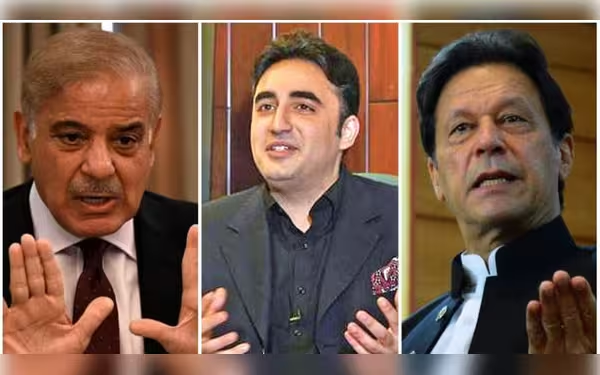Thursday, December 5, 2024 02:46 AM
Establishment Considers Soft Intervention for Political Dialogue in Pakistan
- Establishment seeks dialogue between government and opposition.
- Soft intervention aims to stabilize political environment.
- Politicians must prioritize national welfare over personal interests.
 Image Credits: thenews.com.pk
Image Credits: thenews.com.pkThe establishment in Pakistan is considering a soft intervention to facilitate dialogue between the government and opposition amid ongoing economic challenges.
The political landscape in Pakistan has been tumultuous, with ongoing economic challenges and a divided political arena. In light of these pressing issues, the establishment is reportedly considering a 'soft intervention' to facilitate dialogue between the government and the opposition. This approach is reminiscent of past strategies where influential entities sought to mediate discussions aimed at stabilizing the political environment.
Sources indicate that the establishment is keen on encouraging politicians to engage in talks, recognizing that the current political and economic turmoil necessitates a collaborative effort. However, it is crucial to note that the final decision regarding this potential dialogue rests with the politicians themselves. They hold the power to either embrace or reject the idea of negotiations, which could significantly impact the future of governance in Pakistan.
The concept of 'soft intervention' suggests a more gentle approach, where the establishment may not impose its will but rather act as a facilitator for discussions. This could pave the way for a more constructive dialogue, allowing both sides to express their concerns and aspirations without the fear of backlash. Such an environment could lead to a consensus on critical issues affecting the nation.
As the political climate continues to evolve, the importance of open communication cannot be overstated. Engaging in dialogue may not only help in addressing immediate concerns but also foster a sense of unity among the political factions. It is essential for leaders to prioritize the welfare of the country over personal or party interests, especially during these challenging times.
While the establishment's consideration of a 'soft intervention' is a step towards potential reconciliation, the ultimate responsibility lies with the politicians. They must recognize the urgency of the situation and be willing to come to the table for the greater good. The future of Pakistan depends on their ability to collaborate and find common ground amidst the chaos.













